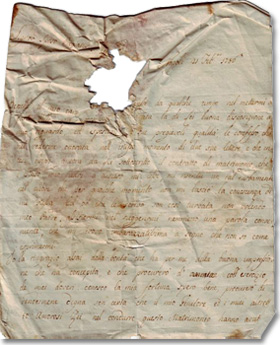

Lucia: A Venetian Life in the Age of Napoleon
About this book
From the acclaimed author of AVenetian Affair comes the vivid and dramatic story of the fall of Venice and the rise of a new age during the tumultuous Napoleonic period, as seen through the eyes of his great-great-great-great-grandmother.
In 1787, Lucia, the beautiful sixteen-year-old daughter of a prominent Venetian statesman, is married off to Alvise Mocenigo, scion of one of the most powerful Venetian families. But their life as a golden couple will be suddenly transformed when Venice falls to Bonaparte. As the larger events unfolding around Lucia mingle with her most personal concerns, we witness—through her letters to her sister and other primary sources—her painful series of miscarriages and the pressure on her to produce an heir; her impassioned affair with an Austrian officer and its stunning results; the glamour and strain of her career as a hostess in Hapsburg Vienna and lady-in-waiting at the court of Napoleon’s stepson, Prince Eugène de eauharnais, as well as her intimate relationship with the Empress Joséphine; and her amazing firsthand account of the defeat of Napoleon in Paris in 1814. In her later years, Lucia, regal and still beautiful and a bit battle-hardened herself, was Byron’s landlord during the poet’s stay in Venice. In a fitting finale to this sweeping drama, Lucia stands as a relic of a lost golden age: she created, in part, the aura that gave rise to the Romantic view of Italy and its culture that we still nourish today.
With the brave and articulate Lucia at the center of his re-creation of this remarkable historical period, Andrea di Robilant has once again reached across the centuries, and deep into his own past, to bring history to rich and vivid life on the page.
"An enticing portrait of a woman and her times ..." Booklist
Excerpt. Chapter One
In the winter of 1786, Andrea Memmo, the Venetian ambassador to the Papal States, was visiting Naples with his daughters Lucia and Paolina during the Carnival season, when he received a dispatch from Venice that he had been waiting for anxiously. Alvise Mocenigo, the only son of one of the wealthiest and most powerful families of the Venetian Republic, agreed to marry Memmo’s oldest daughter, fifteen-year-old Lucia.
Memmo was an experienced diplomat and he knew this letter was only the first step in what promised to be a long and difficult negotiation. Alvise’s personal commitment was no guarantee that the proposal would actually go through, for he was on very bad terms with his father, Sebastiano, and did not get on much better with the rest of his family, whose approval of the marriage contract was indispensable. The Mocenigo elders were irked by Alvise’s marital freelancing. Moreover, they did not favour the prospect of an attachment to the declining house of the Memmos, which had been among the founding families of the Venetian Republic back in the eighth century, but whose finances and political power had been waning for some generations. Still, Memmo felt Alvise’s letter was a promising start, and he was confident in his judgement that the twenty-six-year-old scion of Casa Mocenigo was a son-in-law worth an honest struggle. "For some time now he has shown real promise," he had explained to his closest friends, "and as I flatter myself of foreseeing the future, I know my daughter will be well taken care of."[1] The wisest course, he had concluded, was to cultivate Alvise directly, encouraging him to correspond with Lucia over the heads of the surly Mocenigos ... read more
Author Interview
Q. A discovery of letters between a young beauty, GiustinianaWynne, and your ancestor, the Venetian nobleman Andrea Memmo, inspired your first work AVenetian Affair. What lead to the discovery of Lucia’s letters and what inspired you to tell her story in your new book, Lucia: AVenetian Life in the Age of Napoleon?
A. It was only after finishing AVenetian Affair that I realized there was another box of letters among my father’s papers which I had not yet opened. They turned out to be by Andrea Memmo’s daughter, Lucia, to her future husband, Alvise Mocenigo. These letters, written when Lucia was only sixteen, were so vivid and immediate and provided such a fascinating insight into the complex negotiations leading to an arranged marriage in Venice in the late 18th century ... read more